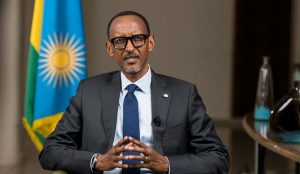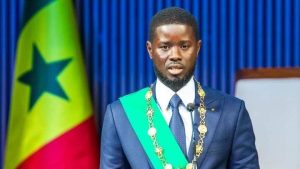ABUJA – Nigeria’s ruling All Progressives Congress (APC) party voted in key primaries on Wednesday to select a candidate to replace President Muhammadu Buhari in next year’s elections.
No clear favorite has emerged among the APC frontrunners vying for leadership of Africa’s most populous country, such as former Lagos Governor Bola Tinubu, Vice President Yemi Osinbajo, former Minister of Transport Rotimi Amaechi and Senate President Ahmad Lawan.
The APC conference in Abuja came two days after 22 people were killed in an attack on a church in the south west – a reminder that security will be a major issue in the elections.
More than 2,300 APC delegates voted to select a candidate who will stand against People’s Democratic Party (PDP) Atiku Abubakar, 75, in the February 25 presidential election.
Buhari, who is stepping down after the two terms to which he is constitutionally entitled, arrived at Eagles Square Convention Center on Tuesday evening before voting began very early on Wednesday.
The Nigerian leader spent the days leading up to the convention negotiating with APC factions to seek unity around a strong candidate, although he gave no indication of his preferred name.
“We must elect a genuine and knowledgeable nationalist with a very strong belief in the unity of our nation, Nigeria, and a strength of character and determination to move the country forward,” Buhari said in a speech at the convention.
“We should not allow the PDP to withdraw the country.”
At least three potential candidates withdrew from the race just before voting began, shifting their delegate votes to Tinubu, a former governor loyal to the APC known as the “Godfather of Lagos”.
Part of the APC’s candidate debate concerns “zoning” – an unofficial agreement among political elites that Nigeria’s presidency should alternate between those in the predominantly Christian south and those in the predominantly Muslim north.
After two terms with northern Muslim Buhari, observers expected the presidency to go to a southern candidate.
But the PDP – which held its primary elections on May 28-29 – chose Abubakar, a former vice president and political crony who is a Muslim from the north.
NO FAVOURITE
The opposition’s decision to ignore “zoning” has prompted the APC to reconsider how its candidate will be received in the north, where voter numbers and turnout are traditionally higher.
Buhari, who is the leader of the ruling party, had asked APC members to “leave the decision to the delegates”.
Tight security was deployed in central Abuja on Tuesday and roads were blocked as hundreds of APC supporters dressed in party colors of green, white and red gathered in and around the site.
The results of the primaries were due to be officially announced at 21:00 GMT on Tuesday, when the winner was expected to deliver an acceptance speech – although a delay was expected.
Security will be a major issue in the elections as the military grapples with a 12-year-old jihadist conflict in the northeast and criminal gangs carry out mass raids and kidnappings in the northwest.
The attack on St. Francis Catholic Church in Ondo state on Sunday during a church service was a rare attack in the country’s normally more peaceful southwestern region.
The local governor said on Tuesday that 22 people were killed and nearly 60 injured when gunmen used explosives and machine guns to attack worshippers. No one claimed responsibility for the attack.
Nigeria’s economy is also recovering from the impact of the coronavirus pandemic and the aftermath of the war in Ukraine, with the World Bank predicting the number of poor Nigerians will reach 95.1 million this year.







